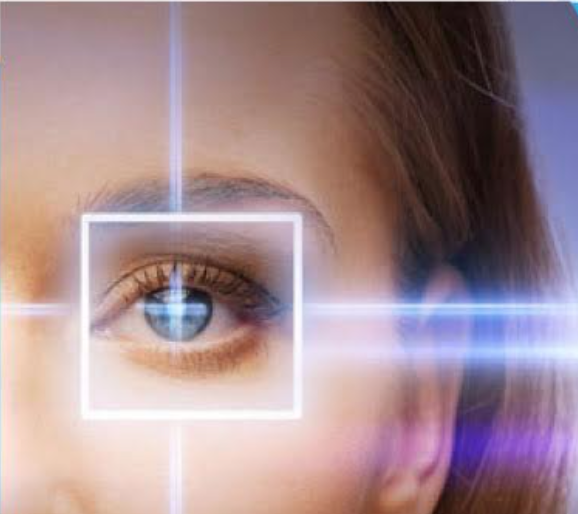Top Cardiologist in Andalusia: Expert Heart Treatment at Your Local Clinic
Top Cardiologist in Andalusia: Expert Heart Treatment at Your Local Clinic
Blog Article
Is Refractive Surgical Procedure Right for You? Variables to Think About for Better Eyecare
In the realm of eye care, the decision to undertake refractive surgical procedure is a crucial one that demands thoughtful factor to consider. As people look for quality and liberty from the restraints of restorative lenses, various factors come right into play when identifying the suitability of such a procedure. From the ins and outs of one's eye health and wellness to the intricacies of individual assumptions and day-to-day behaviors, each aspect holds significance in the more comprehensive landscape of refractive surgery candidacy. By examining these essential elements with care and precision, a more clear course in the direction of informed decision-making arises.
Eye Health And Wellness Analysis
When taking into consideration refractive surgery, a detailed eye health and wellness analysis is essential to examine the suitability of the procedure for every person. eye center andalusia. This assessment entails a series of tests and exams conducted by an eye care expert to identify the overall wellness of the eyes, the existence of any kind of underlying problems, and the stability of the refractive error
During the assessment, numerous factors are thought about, such as the individual's medical history, existing eye prescription, corneal thickness, student size, and tear film quality. These analyses help to identify any kind of contraindications to refractive surgery, such as corneal problems, cataracts, or untreated eye infections. Additionally, the examination aids to manage patient expectations pertaining to the prospective outcomes of the surgery based upon their unique eye features.
Inevitably, the eye health evaluation is crucial in ensuring the security and effectiveness of refractive surgery, as it offers important insights right into the individual's eye health and wellness standing and helps determine the most suitable treatment choices for accomplishing optimal visual outcomes. (cardiologist andalusia)
Way Of Living Analysis
A thorough way of life evaluation is indispensable in establishing the viability of refractive surgical treatment for a person's aesthetic adjustment demands. Way of living elements such as line of work, leisure activities, and day-to-day activities play a vital role in the decision-making procedure regarding refractive surgical procedure.
Additionally, lifestyle behaviors such as sports participation, outdoor activities, and even skincare routines can affect the recovery procedure and overall success of refractive surgical procedure. For instance, people who take part in get in touch with sporting activities may need to take extra safety measures to shield their eyes during the healing duration. Furthermore, individuals with substantial sunlight direct exposure might require added post-operative care to stop complications. By conducting an extensive lifestyle evaluation, eye care professionals can tailor their recommendations and treatment strategies to satisfy the special requirements of each individual, ultimately bring about improved aesthetic outcomes and contentment.
Assumption Positioning

Establishing sensible expectations includes thorough pre-operative conversations between the client and the eye doctor. The doctor should transparently communicate the potential threats, advantages, and restrictions of the treatment (neurologist andalusia). Individuals require to understand that while several individuals accomplish 20/20 vision or better complying with refractive surgical procedure, some may still call for glasses for specific activities like reading or driving at evening. Taking care of these assumptions aids avoid dissatisfaction and dissatisfaction post-surgery, resulting in an extra positive general experience for the patient.
Threat Evaluation

Elements that might increase the risk of issues consist of age, certain clinical problems like autoimmune diseases, unpredictable vision prescription, thin corneas, and unrealistic client expectations. Furthermore, choosing a knowledgeable and competent specialist, following pre and post-operative treatment instructions diligently, and disclosing any appropriate medical background can help reduce dangers.
To lessen the probability of problems, eye doctors conduct extensive pre-operative examinations to identify any contraindications to surgical treatment. They also talk about the possible risks and advantages with individuals throughout the examination process. By involving in open communication and shared decision-making, both the individual and the eye doctor can work with each other to determine if refractive surgical treatment is the best choice based on private risk profiles and preferred outcomes.
Consultation Relevance
Taking into consideration the important role of notified decision-making in examining threats and possible difficulties in refractive surgical procedure, the examination process holds substantial importance in guiding clients towards optimal results. Throughout the consultation, the ophthalmologist evaluates the person's eye health, refractive mistakes, and overall suitability for surgical procedure. This initial neurologist andalusia assessment is critical in establishing the most suitable procedure for each individual, taking into account elements such as corneal density, pupil size, and existing eye conditions.
Moreover, the consultation serves as a chance for patients to discuss their expectations, concerns, and any questions they might have concerning the surgery. Clear interaction in between the doctor and the individual is important to ensure realistic assumptions and an extensive understanding of the potential dangers and benefits involved.
Furthermore, the appointment permits the surgeon to discuss the various medical choices offered, their particular results, and the post-operative treatment needed. This extensive discussion equips patients to make well-informed decisions regarding their eye care, bring about better complete satisfaction and end results post-surgery.
Verdict
To conclude, people taking into consideration refractive surgery must undertake a comprehensive eye health and wellness assessment, assess their lifestyle behaviors, align their assumptions with prospective results, analyze the affiliated dangers, and prioritize examinations with eye care specialists. These factors play an essential duty in identifying the viability of refractive surgery for each and every person, making sure optimum results and fulfillment with the procedure.
Patients taking into consideration refractive surgical procedure commonly have high expectations relating to the end results, expecting best vision without the demand for glasses or get in touch with lenses. While refractive surgical treatment can substantially improve vision and lower reliance on aesthetic aids, it is critical for people to recognize that results might differ based on individual aspects such as the degree of refractive mistake, corneal density, and total eye wellness.
By engaging in open interaction and shared decision-making, both the individual and the eye doctor can function with each other to figure out if refractive surgical procedure is the appropriate choice based on specific risk profiles and wanted end results.
Considering the essential duty of educated decision-making in analyzing threats and potential problems in refractive surgical treatment, the consultation procedure holds significant relevance in guiding people in the direction of optimal results. Throughout the examination, the eye doctor examines the person's eye health, refractive mistakes, and overall suitability for surgical procedure.
Report this page